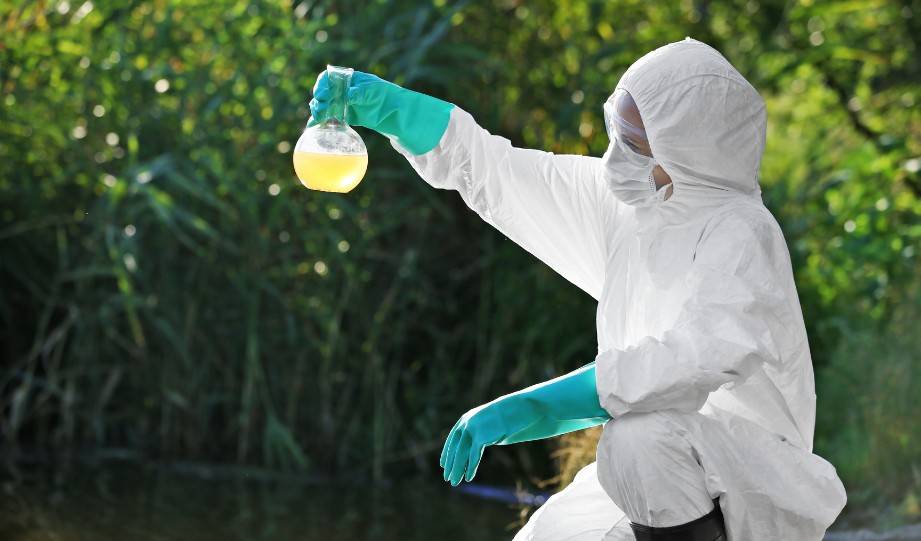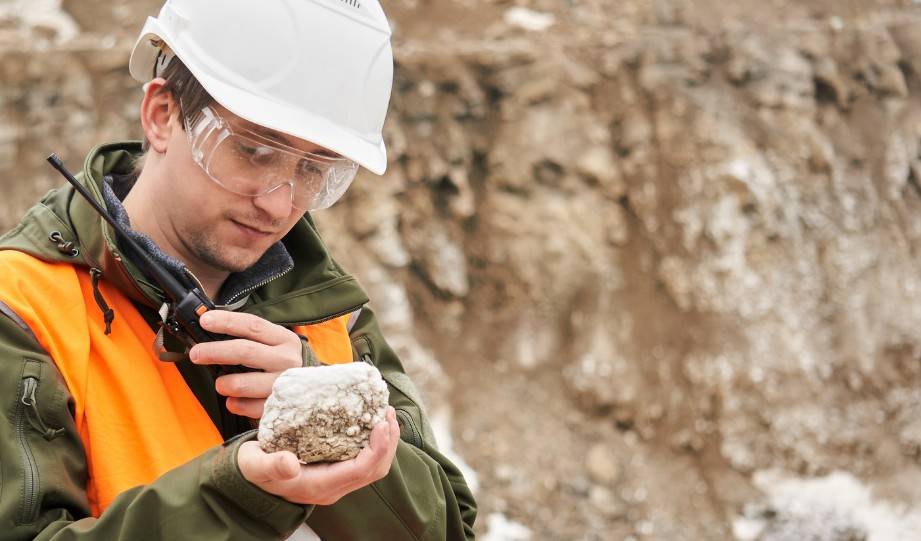Whether you have a passion for the environment or just want to figure out how to get into one of the most up and coming sectors of the economy, you simply cannot ignore the impact of environmental policies.
Not a week goes by without new local, state, and federal policies impacting the economy, and helping businesses with their planning in this area is a great opportunity to find work.
To help you decipher what’s involved in working in this sector and what education and experience you need, I’ve pulled together data on the 21 most related job types.
Best 21 Environmental Policy Jobs
1. Environmental Specialist
The staff that fills this role often works with various other people who specialize in policies that protect the environment. It involves providing technical details and support, including regulatory compliance, to a broader team.
Most companies will require a BSc in an environmental discipline.
2. Environmental Scientist

Most folks just think of climate change when it comes to scientists, but there is a lot more involved.
My search for jobs found work opportunities in all sectors of the economy where medium and large enterprises need to take more action to make their operations more environmentally sustainable.
Depending on the industry and company, third level education, and experience as an environmental engineer are a top requirement.
3. Natural Resource Technician
With a Bachelor’s degree or higher in natural resources, you’ll find plenty of job opportunities to help in resource protection projects.
This job involves a combination of remote fieldwork and sample analysis in the lab, [1] and is a new type of job for college graduates.
Natural Resources Technicians work under the supervision of senior natural resource specialists and managers to analyze environmental problems and develop plans to inform policymakers and regional planners on potential outcomes of bioenergy deployment
— Energy.gov
4. Environmental Protection
This is a heavily research-based job that involves working on a team of scientists to ensure new and existing policy proposals adequately protect the environment.
A Master’s degree with research experience would be a big plus in a successful job application.
5. Health And Safety Technician

Employee and public health, safety, and general welfare require a lot of careful planning and policy management.
People in this role need to learn how to put policies coming out of Washington into actionable organizational process and production changes.
6. Field And Lab Technician

This job type is in high demand and suits folks who like to have a mix of lab work and remote work to analyze, test, and monitor the environment and wildlife.
Educational requirements depend on the company and industry, but a background in natural resources, geology, or biology could open up this career path.
7. Environmental Planner
Companies in the United States have started hiring more planners to help them with the development of production processes that comply with regulations and policies.
Companies often search for a manager-type person in this role as it involves working on a team that interacts with multiple areas of the business.
8. Energy Policy Engineer
Working on environmental policies around energy efficiency is not just a climate matter, but for many companies, it’s a way to plan a more sustainable future.
You would need a degree in renewable energy and learn how public policy impacts strategic decisions.
Be an energy policy engineer by applying to these job ads here.
9. Clean Energy Analyst
This job often involves directly helping a company to learn how to take advantage of clean energy resources. It’s a complicated area as it needs to balance costs with climate-friendly energy decisions.
Education and experience in renewable energy would be an absolute must.
10. Environmental Lawyer
Environmental law is big business in the United States as noncompliance with federal and state laws can cost a company a lot in fines and reputation. [2]
That’s why many large companies now hire lawyers to help them research and apply the law in a time-sensitive way.
Find companies and organizations who are looking for environmental lawyers now.
11. Engineering Geologist

A lot of policies require the input of geologists, especially in the mining industry.
Geological engineers often find work in private companies and public bodies to support decisions in the protection of the environment, as well as health and safety.
Start your journey into becoming an engineering geologist here.
12. Environmental Economist
Economists in this area use models to establish links between the economic impacts of business on the environment, climate, wildlife, and public health and safety.
It’s a heavily research-based discipline that deals with some of the most pressing issues and objections to eco-friendly policy decisions.
13. Environmental Accountant

Traditionally, accountants spend their time on balance sheets and P/L statements, just looking at how a business is doing financially.
But many companies have created a position to assess the organizational impacts of a project or entire operation on the environment. To be successful in this position, you’d need to be a qualified accountant with additional education or training in federal and state regulations.
Become an environmental accountant for these companies and organizations.
14. Environmental Lobbyist
Lobbyists tend to have a bad reputation, but highlighting and speaking out for eco-related issues in Washington may be a job that brings about positive outcomes. Lobbying experience, including working with politicians, would be a minimum requirement for this position.
15. Land Use Planner
Another great job with good salary prospects requires education and skills in developmental planning. These are often public sector positions where you join a team to assess the best restrictions on land use.
Break into the field of developmental planning and become a land use planner here.
16. Urban Planner
By working closely with land-use planners, urban planners aim to support growing towns and cities to overcome ecological and technical problems.
A search for job offers told us that most offers required an MSc in urban development with some management experience as well.
17. Preservation Planner
Working on preservation regulations involves the protection of landscapes and wildlife from intrusive development, including urban expansion. It’s a heavily research-based job that involves working with government agencies in Washington and at the state level to transform data into public policies.
Preserve the environment and work as a preservation planner for these companies and organizations.
18. Transportation Planner
This is a good career option if you’re in search of a job that could have a direct climate impact. It involves working with urban planners to ensure public transport and roads make efficient use of various renewable energy sources and encourage energy-efficient travel options.
19. Recreational Open Space Analyst
Making recreational space a priority for towns and cities comes with many ecological issues, and this is a field that is tightly linked to urban planning. It’s a career that offers a good combination of office and fieldwork with great salary opportunities.
20. Public Involvement Specialist

Both government and private organizations have required staff to help them deal with public perceptions of certain decisions and policies.
Having a dedicated group of employees to interact with the public on issues related to policy procedures has proven to be an important compliance service.
21. Environmental Compliance Specialist
This isn’t a new job role, and companies have been employing compliance specialists for many decades. But environment policies now dictate increasingly more climate actions with higher penalties for noncompliance.
A search for job offers showed that most required a Master’s level degree as well as experience related to environmental engineering.
Frequently Asked Questions (FAQ)
With a degree in environmental policy, you have a long list of different job opportunities both in the public and private sectors. Companies are constantly creating new jobs with great salary prospects that help comply with all the new policies.
An environmental policy aims to provide direction for people and organizations to act in a way that protects the environment. As we learn more and better methods, new types of environmental policy jobs become available.
Environmental science and engineering are the highest paying environmental jobs. Many job offers include a salary level that exceeds $100,000, and it can go a lot higher for people in a management position. Remote locations and travel often increase the level of compensation as well.
An environmental policy major is an academic field where students learn about the impacts of human actions on the natural world. You will also learn how to collect data in the environment to then analyze and use it to form policies, procedures, and laws.
A good environmental policy has to focus on measuring and continuously monitoring ecosystems to ensure adequate management of the natural environment. They include measures to limit and prevent pollution, resource consumption, habitat loss, and many other areas.
Yes, environmental policy is a major where students learn the skills to work in private or government organizations to create and comply with policy mandates and procedures. There are many entry-level to manager job positions that specifically require these skills at a time when climate change is an increasingly important challenge.
Environmental policy is important as it ensures that we protect the natural environment from irreversible damage. By collecting data and monitoring changes, such policies provide a way to alert protection agencies when human actions influence even very remote regions of the planet.
The environmental policy process involves identifying and measuring a problem, finding its root cause, and coming up with suggested solutions. You then need to discuss the solutions with the wider scientific community and search for ways to formulate a general solution that then becomes law.
State and federal governments set environmental policy mainly based on the regions under their control. But many global issues have resulted in more localized actions, especially when it comes to the climate, air, and water pollution.
You write an environmental policy by starting with a description of your organization, group, or service. You also need to state your general objectives and goals for a specific area that your group will measure and monitor in order to form the recommended solutions in the policy.
Conclusion
If you’re looking for a job with great salary and career prospects, then the environmental sector may provide some of the best opportunities.
From entry-level to management positions, there is no shortage of ways to get involved in a sector of the economy that can make a true difference to the world.
Use the search feature on our Green Jobs Board to find the best environmental policy job for you that offers a great compensation package.
Look for more sustainability jobs by category, city, or state.
References
- https://www.zippia.com/biological-science-technician-jobs/skills/
- https://www.law.cornell.edu/wex/environmental_law_violations

